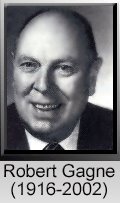 Over the past year, I've done a number of podcasts and vidcasts with Curt Bonk , who is one of our professors in the Indiana University School of Education, as well as using my own podcasts with my online students.
Over the past year, I've done a number of podcasts and vidcasts with Curt Bonk , who is one of our professors in the Indiana University School of Education, as well as using my own podcasts with my online students.I think the phenomena of coursecasting, which has gotten a lot of press lately, is a very basic and minimal use of the podcasting medium. Just recording lectures verbatim doesn't really take best advatage of the characteristics of the medium. It also makes a lot of people nervous, since it seems to invite students to not attend class.
A better, higher-level use of podcasting is to use it to deliver content that is not covered in class, rather than duplicate the F2F material. Instead, podcasts can be used to deliver additional/enrichment/supplementary material. As I've said during workshops, podcasts offer a wonderful opportunity to deliver content that you just can't fit into the 50 minutes or whatever length of time you have for class. Or maybe you'd rather do something more interactive than just a lecture. Podcasting the material can free up class time for non-lecture activities, activities that are more involving and engaging for everyone, like small group activities, collaborations, labs, etc.
In the following podcast, you can hear Dr. Bonk and myself discuss Robert Gagné, a major figure in the instructional technology field. You may have heard of his "9 Events of Instruction" or his "Conditions for Learning." Here's the link to the podcast:
http://www.indiana.edu/~icy/download/gagne.mp3
I'm more in the Ed McMahon role here than a co-presenter ("Yes, sir! You are correct, sir!").
I think it is important to consider the following when creating these Higher Ed podcasts:
- Remember your audience, and the context in which they will be taking in the program. Generally, college students listen to these things in spare moments between classes, at the gym, walking to the library, etc. Tasks that usually are fairly brief. I guess if you worked at a commuter campus, you could lengthen the programs, assuming students would listen to them on the drive home. But even so, anything over half an hour is bound to lose you listeners.
- The tone of podcasts should be friendly, conversational, even humorous if you can carry off that sort of thing. Try to make the podcast enjoyable to listen to. If you can get a colleague to join you, so much the better. If they can provide a second perspective, that could also enrich the content.
- Provide the jist of things. An overview. Don't load it down with citations and URLs. Chances are, your listener may be in spandex bicycle shorts and not even have a pocket for a pencil and paper when he/she is listening to the program. Put the references in your blog, your learning management system, or email them to the students.
1 comment:
情趣,情趣,情趣用品,情趣用品,飛機杯,自慰套,自慰套,自慰套,自慰器,充氣娃娃,AV,按摩棒,電動按摩棒,情趣按摩棒,按摩棒,跳蛋,跳蛋,跳蛋,男女,潤滑液,SM,情趣內衣,內衣,性感內衣,角色扮演,角色扮演服,吊帶襪,丁字褲
Post a Comment